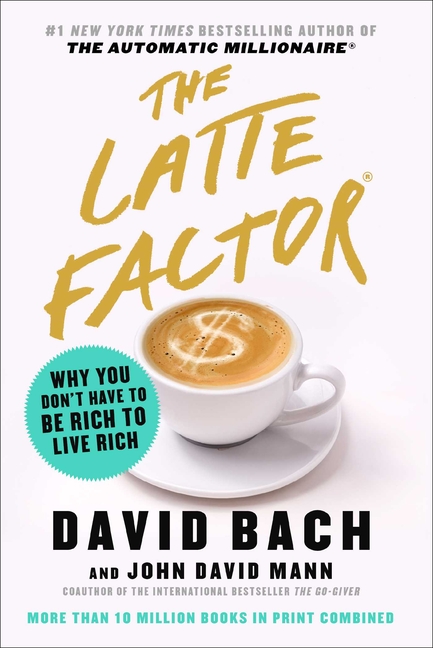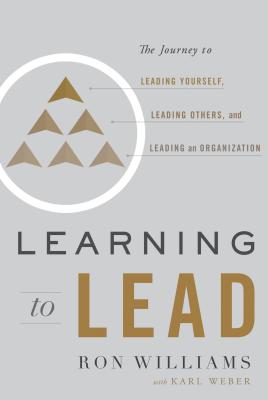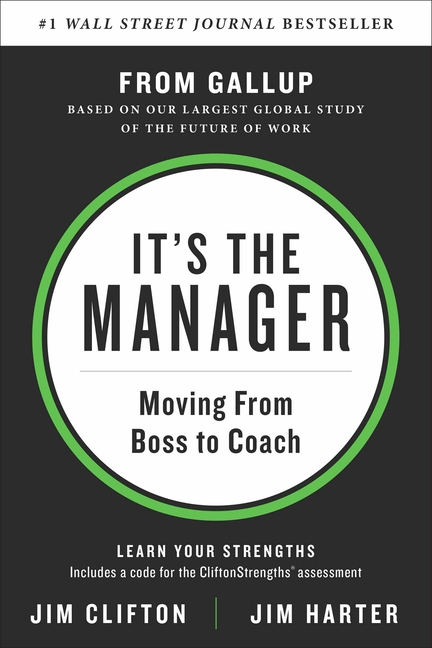Business Books to Watch in May
May 02, 2019
In order of their release dates, here are 25 books—along with the publishers' descriptions of them, we have our eyes on in May.
In order of their release dates, here are 25 books—along with the publishers' descriptions of them, we have our eyes on in May.
 What It Takes: How I Built a $100 Million Business Against the Odds by Raegan Moya-Jones, Portfolio
What It Takes: How I Built a $100 Million Business Against the Odds by Raegan Moya-Jones, Portfolio
The founder of aden + anais and Saint Luna reveals how she built a multimillion-dollar business by playing by her own rules.
Raegan Moya-Jones is one of today’s most fascinating entrepreneurs. Ten years ago, seeing a huge opening in the baby products market, she started aden + anais, which introduced cotton muslin swaddles to the U.S. On the heels of that success she’s now launching another idea, Saint Luna, a boutique liquor company poised to turn the stereotype of moonshine on its head. This book is the story of her entrepreneurial journey: how she stopped holding herself back and learned to go after her dreams.
The John Burroughs quote “Leap, and the net will appear” has been Moya-Jones’ guiding principle in business. But she wasn’t always that bold. She was a party girl in high school in Australia, then ended up dropping out of college. When she finally got her act together, she went into sales, but quickly realized the corporate world wasn’t for her. It was obvious that her (mostly male) bosses didn’t like being challenged by an outspoken Aussie chick.
So she decided to start a company, on her own terms. But instead of quitting her sales executive job at the Economist right away, she quietly built her business every night after putting her young daughters to bed. And when aden + anais reached $1 million in revenue in less than two years, she was finally ready to make the leap. Today her little company is a thriving global brand, and Raegan has moved on to make another entrepreneurial leap.
This empowering story will show the hopeful entrepreneur or career changer that she doesn’t have to know it all—as long as she’s willing to leap. If Raegan can do it, anyone can.
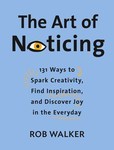 The Art of Noticing: 131 Ways to Spark Creativity, Find Inspiration, and Discover Joy in the Everyday by Rob Walker, Knopf
The Art of Noticing: 131 Ways to Spark Creativity, Find Inspiration, and Discover Joy in the Everyday by Rob Walker, Knopf
An imaginative, thought-provoking gift book to awaken your senses and attune them to the things that matter in your life.
Welcome to the era of white noise. Our lives are in constant tether to phones, to email, and to social media. In this age of distraction, the ability to experience and be present is often lost: to think and to see and to listen.
Enter Rob Walker’s The Art of Noticing. This gorgeously illustrated volume will spark your creativity—and most importantly, help you see the world anew. Through a series of simple and playful exercises—131 of them—Walker maps ways for you to become a clearer thinker, a better listener, a more creative workplace colleague and finally, to rediscover your sense of passion and to notice what really matters to you.
 Power Trip: The Story of Energy by Michael E. Webber, Basic Books
Power Trip: The Story of Energy by Michael E. Webber, Basic Books
A global tour of energy—the builder of human civilization and also its greatest threat.
Energy is humanity's single most important resource. In fact, as energy expert Michael E. Webber argues in Power Trip, the story of how societies rise can be told largely as the story of how they manage energy sources through time. In 2019, as we face down growing demand for and accumulating environmental impacts from energy, we are at a crossroads and the stakes are high. But history shows us that energy's great value is that it allows societies to reinvent themselves.
Power Trip explores how energy has transformed societies of the past and offers wisdom for today's looming energy crisis. There is no magic bullet; energy advances always come with costs. Scientific innovation needs public support. Energy initiatives need to be tailored to individual societies. We must look for long-term solutions. Our current energy crisis is real, but it is solvable. We have the power.
 The Business of Platforms: Strategy in the Age of Digital Competition, Innovation, and Power by Michael A. Cusumano, Annabelle Gawer, and David B. Yoffie, Harper Business
The Business of Platforms: Strategy in the Age of Digital Competition, Innovation, and Power by Michael A. Cusumano, Annabelle Gawer, and David B. Yoffie, Harper Business
A trio of experts on high-tech business strategy and innovation reveal the principles that have made platform businesses the most valuable firms in the world and the first trillion-dollar companies.
Managers and entrepreneurs in the digital era must learn to live in two worlds—the conventional economy and the platform economy. Platforms that operate for business purposes usually exist at the level of an industry or ecosystem, bringing together individuals and organizations so they can innovate and interact in ways not otherwise possible. Platforms create economic value far beyond what we see in conventional companies.
The Business of Platforms is an invaluable, in-depth look at platform strategy and digital innovation. Cusumano, Gawer, and Yoffie address how a small number of companies have come to exert extraordinary influence over every dimension of our personal, professional, and political lives. They explain how these new entities differ from the powerful corporations of the past. They also question whether there are limits to the market dominance and expansion of these digital juggernauts. Finally, they discuss the role governments should play in rethinking data privacy laws, antitrust, and other regulations that could reign in abuses from these powerful businesses.
Their goal is to help managers and entrepreneurs build platform businesses that can stand the test of time and win their share of battles with both digital and conventional competitors. As experts who have studied and worked with these firms for some thirty years, this book is the most authoritative and timely investigation yet of the powerful economic and technological forces that make platform businesses, from Amazon and Apple to Microsoft, Facebook, and Google—all dominant players in shaping the global economy, the future of work, and the political world we now face.
 (It's Great to) Suck at Something: The Unexpected Joy of Wiping Out and What It Can Teach Us About Patience, Resilience, and the Stuff that Really Matters by Karen Rinaldi, Atria Books
(It's Great to) Suck at Something: The Unexpected Joy of Wiping Out and What It Can Teach Us About Patience, Resilience, and the Stuff that Really Matters by Karen Rinaldi, Atria Books
Discover how the freedom of sucking at something can help you build resilience, embrace imperfection, and find joy in the pursuit rather than the goal.
What if the secret to resilience and joy is the one thing we’ve been taught to avoid?
When was the last time you tried something new? Something that won’t make you more productive, make you more money, or check anything off your to-do list? Something you’re really, really bad at, but that brought you joy?
Odds are, not recently.
As a sh*tty surfer and all-around-imperfect human Karen Rinaldi explains in this eye-opening book, we live in a time of aspirational psychoses. We humblebrag about how hard we work and we prioritize productivity over play. Even kids don’t play for the sake of playing anymore: they’re building blocks to build the ideal college application. But we’re all being had. We’re told to be the best or nothing at all. We’re trapped in an epic and farcical quest for perfection. We judge others on stuff we can’t even begin to master, and it’s all making us more anxious and depressed than ever. Worse, we’re not improving on what really matters.
This book provides the antidote. (It's Great to) Suck at Something reveals that the key to a richer, more fulfilling life is finding something to suck at. Drawing on her personal experience sucking at surfing (a sport she’s dedicated nearly two decades of her life to doing without ever coming close to getting good at it) along with philosophy, literature, and the latest science, Rinaldi explores sucking as a lost art we must reclaim for our health and our sanity and helps us find the way to our own riotous suck-ability. She draws from sources as diverse as Anthony Bourdain and surfing luminary Jaimal Yogis, Thich Nhat Hanh, and Jean-Paul Sartre, among many others, and explains the marvelous things that happen to our mammalian brains when we try something new, all to discover what she’s learned firsthand: it is great to suck at something. Sucking at something rewires our brain in positive ways, helps us cultivate grit, and inspires us to find joy in the process, without obsessing about the destination. Ultimately, it gives you freedom: the freedom to suck without caring is revelatory.
Coupling honest, hilarious storytelling with unexpected insights, (It's Great to) Suck at Something is an invitation to embrace our shortcomings as the very best of who we are and to open ourselves up to adventure, where we may not find what we thought we were looking for, but something way more important.
 The Latte Factor: Why You Don't Have to Be Rich to Live Rich by David Bach & John David Mann, Atria Books
The Latte Factor: Why You Don't Have to Be Rich to Live Rich by David Bach & John David Mann, Atria Books
Discover #1 New York Times bestselling author David Bach’s three secrets to financial freedom in an engaging story that will show you that you are richer than you think. Drawing on the author’s experiences teaching millions of people around the world to live a rich life, this fast, easy read reveals how anyone—from millennials to baby boomers—can still make their dreams come true.
In this compelling, heartwarming parable, Bach and his bestselling coauthor John David Mann (The Go-Giver) tell the story of Zoey, a twenty-something woman living and working in New York City. Like many young professionals, Zoey is struggling to make ends meet under a growing burden of credit card and student loan debt, working crazy hours at her dream job but still not earning enough to provide a comfortable financial cushion. At her boss’s suggestion, she makes friends with Henry, the elderly barista at her favorite Brooklyn coffee shop.
Henry soon reveals his “Three Secrets to Financial Freedom,” ideas Zoey dismisses at first but whose true power she ultimately comes to appreciate. Over the course of a single week, Zoey discovers that she already earns enough to secure her financial future and realize her truest dreams—all she has to do is make a few easy shifts in her everyday routine.
The Latte Factor demystifies the secrets to achieving financial freedom, inspiring readers to realize that it’s never too late to reach for your dreams. By following the simple, proven path that Henry shows Zoey, anyone can make small changes today that will have big impact for a lifetime, proving once again that “David Bach is the financial expert to listen to when you’re intimidated by your finances” (Tony Robbins, #1 New York Times bestselling author of Money: Master the Game).
 The Art of Quiet Influence: Timeless Wisdom for Leading without Authority by Jocelyn Davis, Nicholas Brealey
The Art of Quiet Influence: Timeless Wisdom for Leading without Authority by Jocelyn Davis, Nicholas Brealey
Anyone can be a quiet influencer. But not everyone knows how.
Drawing on the enduring wisdom of the Buddha, Confucius, Rumi, Gandhi and others, The Art of Quiet Influence shows anyone, not just bosses, how to use influence without authority, a key mindfulness principle, to get things done at work and in life. Through the classic wisdom of 12 Eastern sages, relevant insights from influence research, and anecdotes and advice from 25 contemporary experts, Davis lays out a path for becoming a "mainspring," the unobtrusive yet powerful influencer first introduced in her book The Greats on Leadership.
Organized around three core influence practices—Invite Participation, Share Power, and Aid Progress—readers will learn how to take mindfulness practice "out of the gym and onto the field," while gaining the confidence and practical know-how to be influential in whatever role they occupy.
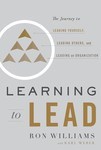 Learning to Lead: The Journey to Leading Yourself, Leading Others, and Leading an Organization by Ron Williams, with Karl Weber, Greenleaf Book Group
Learning to Lead: The Journey to Leading Yourself, Leading Others, and Leading an Organization by Ron Williams, with Karl Weber, Greenleaf Book Group
This master class on leadership, written by one of America’s most prominent and successful executives, will help you develop the professional leadership qualities that deliver personal, interpersonal, and organizational success.
In Learning to Lead, Ron Williams provides you with practical, tested leadership advice, whether you’re searching for a new career, looking for proven management solutions, or seeking to transform your organization. Developed from Williams’s own personal and professional journey, as well as the experiences of America’s leading CEOs, these strategies emerge boldly from engaging stories, outlined with practical steps for you to accomplish goals such as—
- Launching your career quest
- Avoiding professional pitfalls, wrong turns, and wasted effort
- Overcoming interpersonal challenges and conflicts
- Building and leading an effective, high-performance team
- Prioritizing and solving problems from multiple perspectives
- Developing your leadership style and mastering communication
- Casting a vision and changing the culture of your organization
After finishing Learning to Lead, you will be well equipped to take the next step to success in your personal and professional leadership journey. Williams’s book has the potential to join other leadership development classics on your shelf—to be read repeatedly and consulted throughout the span of your career.
 How to Raise Successful People: Simple Lessons for Radical Results by Esther Wojcicki, Houghton Mifflin Harcourt
How to Raise Successful People: Simple Lessons for Radical Results by Esther Wojcicki, Houghton Mifflin Harcourt
The Godmother of Silicon Valley, legendary teacher, and mother of a Super Family shares her tried-and-tested methods for raising happy, healthy, successful children using Trust, Respect, Independence, Collaboration, and Kindness: TRICK.
Esther Wojcicki—“Woj” to her many friends and admirers—is famous for three things: teaching a high school class that has changed the lives of thousands of kids, inspiring Silicon Valley legends like Steve Jobs, and raising three daughters who have each become famously successful. What do these three accomplishments have in common? They’re the result of TRICK, Woj’s secret to raising successful people: Trust, Respect, Independence, Collaboration, and Kindness. Simple lessons, but the results are radical.
Wojcicki’s methods are the opposite of helicopter parenting. As we face an epidemic of parental anxiety, Woj is here to say: relax. Talk to infants as if they are adults. Allow teenagers to pick projects that relate to the real world and their own passions, and let them figure out how to complete them. Above all, let your child lead. How to Raise Successful People offers essential lessons for raising, educating, and managing people to their highest potential. Change your parenting, change the world.
 Moneyland: The Inside Story of the Crooks and Kleptocrats Who Rule the World by Oliver Bullough, St. Martin's Press
Moneyland: The Inside Story of the Crooks and Kleptocrats Who Rule the World by Oliver Bullough, St. Martin's Press
An investigative journalist's deep dive into the corrupt workings of the world's kleptocrats.
From ruined towns on the edge of Siberia, to Bond-villain lairs in London and Manhattan, something has gone wrong. Kleptocracies, governments run by corrupt leaders that prosper at the expense of their people, are on the rise.
Once upon a time, if an official stole money, there wasn't much he could do with it. He could buy himself a new car or build himself a nice house or give it to his friends and family, but that was about it. If he kept stealing, the money would just pile up in his house until he had no rooms left to put it in, or it was eaten by mice.
And then some bankers had a bright idea.
Join the investigative journalist Oliver Bullough on a journey into Moneyland—the secret country of the lawless, stateless superrich.
Learn how the institutions of Europe and the United States have become money-laundering operations, attacking the foundations of many of the world's most stable countries. Meet the kleptocrats. Meet their awful children. And find out how heroic activists around the world are fighting back.
This is the story of wealth and power in the 21st century. It isn't too late to change it.
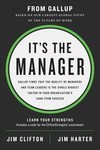 It's the Manager by Jim Clifton & Jim Harter, Gallup Press
It's the Manager by Jim Clifton & Jim Harter, Gallup Press
Packed with 52 discoveries from Gallup’s largest study on the future of work, It's the Manager shows leaders how to adapt their organizations to rapid change, ranging from new workplace demands to managing remote employees, a diverse workforce, the rise of artificial intelligence, gig workers, and attracting—and keeping—today’s best employees.
Who is the most important person in your organization to lead your teams through these changes? Gallup research reveals: It’s your managers. They are the ones who make or break your organization’s success.
While the world’s workplace has been going through extraordinary historical change, the practice of management has been stuck in time for more than 30 years. The new workforce—especially younger generations—wants their work to have deep mission and purpose, and they don’t want old-style command-and-control bosses. They want coaches who inspire them, communicate with them frequently, and develop their strengths.
When you build great managers—ones who can maximize the potential of every team member—you will see organic revenue and profit growth, and you will deliver to every one of your employees what they most want today: a great job and a great life. This is the future of work.
It's the Manager includes exclusive content from Gallup Access—Gallup’s new workplace platform, chock full of additional content, tools, and solutions for business. Your book comes with a code for the CliftonStrengths assessment, which will reveal users’ Top 5 strengths.
 The Remix: How to Lead and Succeed in the Multigenerational Workplace by Lindsey Pollak, Harper Business
The Remix: How to Lead and Succeed in the Multigenerational Workplace by Lindsey Pollak, Harper Business
The essential guide for business leaders, entrepreneurs, and employees looking to navigate today’s multigenerational workplace, which spans more generations than ever before.
Millennials have only just begun their reign as the largest generation in the workplace. But they are not alone. For the next decade at least, these young professionals will be working side by side with more established generations, including the Baby Boomers who are working longer than ever, and an entirely new group coming up, Generation Z.
This means within any organization, any team, any meeting, any marketing opportunity, you may find any combination of generations. Each of these age groups has their own attitude, expectations, and professional style. To lead and succeed in any organization today, you must adapt to how Millennials work, while continuing to accommodate their older colleagues and paying attention to the next generations coming up. The Remix shows you how to adapt and win through proven strategies that serve all generations’ needs.
As the leading expert on generations in the workplace, Lindsey Pollak combines the most recent data from a variety of authoritative sources with her own original research, as well as detailed case studies from her Fortune 500 clients. Pollak outlines the ways businesses, executives, mid-level managers, employees, and entrepreneurs can handle situations that may arise when diverse styles clash and provides clear strategies to turn generational diversity into business opportunity.
Generational change is impacting all industries, all types of organizations, and all leaders. The Remix is an essential read for anyone who wants to survive and thrive today and into the future.
 Alchemy: The Dark Art and Curious Science of Creating Magic in Brands, Business, and Life by Rory Sutherland, William Morrow
Alchemy: The Dark Art and Curious Science of Creating Magic in Brands, Business, and Life by Rory Sutherland, William Morrow
The legendary advertising guru—Ogilvy UK’s vice chairman—and star of three massively popular TED Talks, blends the science of human behavior with his vast experience in the art of persuasion in this incomparable book that decodes successful branding and marketing in the vein of Freakonomics, Thinking Fast and Slow, and The Power of Habit.
When Rory Sutherland was a trainee working on a direct mail campaign at the famed advertising firm OgilvyOne, he noticed that very small changes in design often had immense effects on the number of consumer responses. Yet no one he worked with knew why. Sutherland began taking stock of each effective yet nebulous trick—”the thing which has no name”—he discovered. As he rose in the advertising industry, he began to understand why these things had no name: no one was interested in quantifying them, cataloguing them, or really investigating them. So, he did it himself.
Like classic behavioral economists Daniel Kahneman and Richard Thaler, Sutherland peels away hidden, often irrational human behaviors that explain how the world around us functions. In Alchemy he examines why certain ads work and the broader truths they tell us about who we are. Why do people prefer stripy toothpaste, and how might that help us design retirement plans that young people would actually buy? Why do we think orange juice is healthy, and how does the same principle guide our feelings about nuclear reactors? Why do budget airlines advertise services they don’t offer—and what might insurance companies learn from them about keeping healthcare costs low?
Filled with startling and profound conclusions, Sutherland’s journey through the world of advertising and its surprising lessons for human behavior is insightful, brilliant, eye-opening, and irresistibly fun.
 Red Meat Republic: A Hoof-to-Table History of How Beef Changed America by Joshua Specht, Princeton University Press
Red Meat Republic: A Hoof-to-Table History of How Beef Changed America by Joshua Specht, Princeton University Press
How beef conquered America and gave rise to the modern industrial food complex.
By the late nineteenth century, Americans rich and poor had come to expect high-quality fresh beef with almost every meal. Beef production in the United States had gone from small-scale, localized operations to a highly centralized industry spanning the country, with cattle bred on ranches in the rural West, slaughtered in Chicago, and consumed in the nation’s rapidly growing cities. Red Meat Republic tells the remarkable story of the violent conflict over who would reap the benefits of this new industry and who would bear its heavy costs.
Joshua Specht puts people at the heart of his story—the big cattle ranchers who helped to drive the nation’s westward expansion, the meatpackers who created a radically new kind of industrialized slaughterhouse, and the stockyard workers who were subjected to the shocking and unsanitary conditions described by Upton Sinclair in his novel The Jungle. Specht brings to life a turbulent era marked by Indian wars, Chicago labor unrest, and food riots in the streets of New York. He shows how the enduring success of the cattle-beef complex—centralized, low cost, and meatpacker dominated—was a consequence of the meatpackers’ ability to make their interests overlap with those of a hungry public, while the interests of struggling ranchers, desperate workers, and bankrupt butchers took a backseat. America—and the American table—would never be the same again.
A compelling and unfailingly enjoyable read, Red Meat Republic reveals the complex history of exploitation and innovation behind the food we consume today.
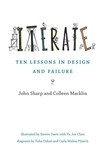 Iterate: Ten Lessons in Design and Failure by John Sharp & Colleen Macklin, The MIT Press
Iterate: Ten Lessons in Design and Failure by John Sharp & Colleen Macklin, The MIT Press
How to confront, embrace, and learn from the unavoidable failures of creative practice; with case studies that range from winemaking to animation.
Failure is an inevitable part of any creative practice. As game designers, John Sharp and Colleen Macklin have grappled with crises of creativity, false starts, and bad outcomes. Their tool for coping with the many varieties of failure: iteration, the cyclical process of conceptualizing, prototyping, testing, and evaluating. Sharp and Macklin have found that failure—often hidden, covered up, a source of embarrassment—is the secret ingredient of iterative creative process. In Iterate, they explain how to fail better.
After laying out the four components of creative practice—intention, outcome, process, and evaluation—Sharp and Macklin describe iterative methods from a wide variety of fields. They show, for example, how Radiolab cohosts Jad Abumrad and Robert Krulwich experiment with radio as a storytelling medium; how professional skateboarder Amelia Bródka develops skateboarding tricks through trial and error; and how artistic polymath Miranda July explores human frailty through a variety of media and techniques. Whimsical illustrations tell parallel stories of iteration, as hard-working cartoon figures bake cupcakes, experiment with levitating office chairs, and think outside the box in toothbrush design (“let's add propellers!”). All, in their various ways, use iteration to transform failure into creative outcomes. With Iterate:, Sharp and Macklin offer useful lessons for anyone interested in the creative process.
 The Theft of a Decade: How the Baby Boomers Stole the Millennials' Economic Future by Joseph C. Sternberg, PublicAffairs
The Theft of a Decade: How the Baby Boomers Stole the Millennials' Economic Future by Joseph C. Sternberg, PublicAffairs
A Wall Street Journal columnist delivers a brilliant narrative of the mugging of the millennial generation—how the Baby Boomers have stolen the millennials' future in order to ensure themselves a comfortable present
The Theft of a Decade is a contrarian, revelatory analysis of how one generation pulled the rug out from under another, and the myriad consequences that has set in store for all of us. The millennial generation was the unfortunate victim of several generations of economic theories that made life harder for them than it was for their grandparents.
Then came the crash of 2008, and the Boomer generation's reaction to it was brutal: politicians and policy makers made deliberate decisions that favored the interests of the Boomer generation over their heirs, the most egregious being over the use of monetary policy, fiscal policy and regulation. For the first time in recent history, policy makers gave up on investing for the future and instead mortgaged that future to pay for the ugly economic sins of the present.
This book describes a new economic crisis, a sinister tectonic shift that is stealing a generation's future.
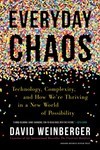 Everyday Chaos: Technology, Complexity, and How We’re Thriving in a New World of Possibility by David Weinberger, Harvard Business Review Press
Everyday Chaos: Technology, Complexity, and How We’re Thriving in a New World of Possibility by David Weinberger, Harvard Business Review Press
Make. More. Future.
Artificial intelligence, big data, modern science, and the internet are all revealing a fundamental truth: The world is vastly more complex and unpredictable than we've allowed ourselves to see.
Now that technology is enabling us to take advantage of all the chaos it's revealing, our understanding of how things happen is changing—and with it our deepest strategies for predicting, preparing for, and managing our world. This affects everything, from how we approach our everyday lives to how we make moral decisions and how we run our businesses.
Take machine learning, which makes better predictions about weather, medical diagnoses, and product performance than we do—but often does so at the expense of our understanding of how it arrived at those predictions. While this can be dangerous, accepting it is also liberating, for it enables us to harness the complexity of an immense amount of data around us. We are also turning to strategies that avoid anticipating the future altogether, such as A/B testing, Minimum Viable Products, open platforms, and user-modifiable video games. We even take for granted that a simple hashtag can organize unplanned, leaderless movements such as #MeToo.
Through stories from history, business, and technology, philosopher and technologist David Weinberger finds the unifying truths lying below the surface of the tools we take for granted—and a future in which our best strategy often requires holding back from anticipating and instead creating as many possibilities as we can. The book’s imperative for business and beyond is simple: Make. More. Future.
The result is a world no longer focused on limitations but optimized for possibilities.
 From Sabotage to Support: A New Vision for Feminist Solidarity in the Workplace by Joy L. Wiggins & Kami J. Anderson, Berrett-Koehler
From Sabotage to Support: A New Vision for Feminist Solidarity in the Workplace by Joy L. Wiggins & Kami J. Anderson, Berrett-Koehler
Women are acculturated within systems that encourage them to sabotage one another; this book shows how they can break free of this cultural programming and use whatever privilege and power they have to raise each other up.
Joy Wiggins and Kami Anderson advocate that the only way women can successfully support each other is by addressing the varying intersections of our individual power and privileges, particularly focusing on how some privileges are inherited along lines of race, class, sexuality, and geography. When we fully examine how we have power in certain situations and not in others, we start to see where we can lend privilege to create truly inclusive spaces for the historically underrepresented and marginalized.
Wiggins and Anderson look at how the dynamics of privilege and power have played out in the history of the feminist movement and identify and break down socialized behaviors and ideologies that trigger implicit bias and microaggressions. And they provide tools to interrupt negative thoughts and actions so women can nurture mutual support and show up as their authentic selves. Each chapter features a dialogue between them reflecting on how issues of race, privilege, and power have played out in their lives and their friendship.
The system of patriarchy has created an environment for women to knowingly and unknowingly sabotage each other—it is not inherent in women themselves. This book teaches us how to take an active approach to becoming better allies for each other and by so doing improve our world and end the cycle of injustice.
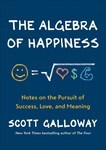 The Algebra of Happiness: Notes on the Pursuit of Success, Love, and Meaning by Scott Galloway, Portfolio
The Algebra of Happiness: Notes on the Pursuit of Success, Love, and Meaning by Scott Galloway, Portfolio
An unconventional book of wisdom and life advice from renowned business school professor and New York Times bestselling author of The Four Scott Galloway.
Scott Galloway teaches brand strategy at NYU’s Stern School of Business, but his most popular lectures deal with life strategy, not business. In the classroom, on his blog, and in YouTube videos garnering millions of views, he regularly offers hard-hitting answers to the big questions: What’s the formula for a life well lived? How can you have a meaningful career, not just a lucrative one? Is work/life balance possible? What are the elements of a successful relationship?
The Algebra of Happiness draws on Professor Galloway’s mix of anecdotes and no-BS insight to share hard-won wisdom about life’s challenges, along with poignant personal stories.
Whether it’s advice on if you should drop out of school to be an entrepreneur (it might have worked for Steve Jobs, but you’re probably not Steve Jobs), ideas on how to position yourself in a crowded job market (do something “boring” and move to a city; passion is for people who are already rich), discovering what the most important decision in your life is (it’s not your job, your car, OR your zip code), or arguing that our relationships to others are ultimately all that matter, Galloway entertains, inspires, and provokes.
Brash, funny, and surprisingly moving, The Algebra of Happiness represents a refreshing perspective on our need for both professional success and personal fulfillment, and makes the perfect gift for any new graduate, or for anyone who feels adrift.
 Priced Out: The Economic and Ethical Costs of American Health Care by Uwe E. Reinhardt, Princeton University Press
Priced Out: The Economic and Ethical Costs of American Health Care by Uwe E. Reinhardt, Princeton University Press
From a giant of health care policy, an engaging and enlightening account of why American health care is so expensive—and why it doesn't have to be.
Uwe Reinhardt was a towering figure and moral conscience of health care policy in the United States and beyond. Famously bipartisan, he advised presidents and Congress on health reform and originated central features of the Affordable Care Act. In Priced Out, Reinhardt offers an engaging and enlightening account of today's U.S. health care system, explaining why it costs so much more and delivers so much less than the systems of every other advanced country, why this situation is morally indefensible, and how we might improve it.
The problem, Reinhardt says, is not one of economics but of social ethics. There is no American political consensus on a fundamental question other countries settled long ago: to what extent should we be our brothers' and sisters' keepers when it comes to health care? Drawing on the best evidence, he guides readers through the chaotic, secretive, and inefficient way America finances health care, and he offers a penetrating ethical analysis of recent reform proposals. At this point, he argues, the United States appears to have three stark choices: the government can make the rich help pay for the health care of the poor, ration care by income, or control costs. Reinhardt proposes an alternative path: that by age 26 all Americans must choose either to join an insurance arrangement with community-rated premiums, or take a chance on being uninsured or relying on a health insurance market that charges premiums based on health status.
An incisive look at the American health care system, Priced Out dispels the confusion, ignorance, myths, and misinformation that hinder effective reform.
 Bossed Up: A Grown Woman's Guide to Getting Your Sh*t Together by Emilie Aries, PublicAffairs
Bossed Up: A Grown Woman's Guide to Getting Your Sh*t Together by Emilie Aries, PublicAffairs
In this candid, refreshing guide for young women to take with us as we run the world, Emilie Aries shows you how to own your power, know your worth, and design your career and life accordingly.
Young women today face an uncertain job market, the pressure to ascend at all costs, and a fear of burning out. But the landscape is changing, and women are taking an assertive role in shaping our careers and lives, while investing more and more in our community of support.
Bossed Up teaches you how to:
- Break out of the "martyrdom mindset," and cultivate your Boss Identity by getting clear on what you really want for your career and life without apology;
- Hone the self-advocacy skills necessary for success;
- Understand the differences between being assertive (which is part of being a leader) and being aggressive (which is more like being a bully) - and how that clarity can transform your trajectory;
- Beat burnout by identifying how the warning signs may be showing up in your life and how to prioritize bringing more rest, purpose, agency, and community to your day-to-day life;
- Unpack the steps to cultivating something more than just confidence; a boss identity, which will establish your ability to be the boss of your life no matter what comes your way.
Drawing from timely research, and with personal stories, and spotlights on a diverse group of women from the Bossed Up community, this book will show you how to craft a happy, healthy, and sustainable career path you'll love.
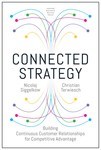 Connected Strategy: Building Continuous Customer Relationships for Competitive Advantage by Nicolaj Siggelkow & Christian Terwiesch, Harvard Business Review Press
Connected Strategy: Building Continuous Customer Relationships for Competitive Advantage by Nicolaj Siggelkow & Christian Terwiesch, Harvard Business Review Press
Business Models for Transforming Customer Relationships
What if there were a way to turn occasional, sporadic transactions with customers into long-term, continuous relationships—while simultaneously driving dramatic improvements in operational efficiency? What if you could break your existing trade-offs between superior customer experience and low cost?
This is the promise of a connected strategy. New forms of connectivity—involving frequent, low-friction, customized interactions—mean that companies can now anticipate customer needs as they arise, or even before. Simultaneously, enabled by these technologies, companies can create new business models that deliver more value to customers. Connected strategies are win-win: Customers get a dramatically improved experience, while companies boost operational efficiency.
In this book, strategy and operations experts Nicolaj Siggelkow and Christian Terwiesch reveal the emergence of connected strategies as a new source of competitive advantage. With in-depth examples from companies operating in industries such as healthcare, financial services, mobility, retail, entertainment, nonprofit, and education, Connected Strategy identifies the four pathways—respond-to-desire, curated offering, coach behavior, and automatic execution—for turning episodic interactions into continuous relationships. The authors show how each pathway creates a competitive advantage, then guide you through the critical decisions for creating and implementing your own connected strategies.
Whether you're trying to revitalize strategy in an established company or disrupt an industry as a startup, this book will help you:
- Reshape your connections with your customers
- Find new ways to connect with existing suppliers while also activating new sources of capacity
- Create the right revenue model
- Make the best technology choices to support your strategy
Integrating rich examples, how-to advice, and practical tools in the form of "workshop chapters" throughout, this book is the ultimate resource for creating competitive advantage through connected relationships with your customers and redefined connections in your industry.
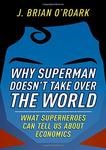 Why Superman Doesn't Take Over The World: What Superheroes Can Tell Us About Economics by J. Brian O'Roark, Oxford University Press
Why Superman Doesn't Take Over The World: What Superheroes Can Tell Us About Economics by J. Brian O'Roark, Oxford University Press
Why do heroes fight each other?
Why do villains keep trying even though they almost never win?
Why don't heroes simply take over the world?
Economics and comics may seem to be a world apart. But in the hands of economics professor and comic book hero aficionado Brian O'Roark, the two form a powerful alliance. With brilliant deadpan enthusiasm he shows how the travails of superheroes can explain the building blocks of economics, and how economics explains the mysteries of superhero behavior.
Spider-Man's existential doubts revolve around opportunity costs; Wonder Woman doesn't have a sidekick because she has a comparative advantage; game theory sheds light on the battle between Captain America and Iron Man; the Joker keeps committing crimes because of the Peltzman effect; and utility curves help us decide who is the greatest superhero of all.
Why Superman Doesn't Take Over The World probes the motivations of our favorite heroes, and reveals that the characters in the comics may have powers we don't, but they are still beholden to the laws of economics.
 Entrenchment: Wealth, Power, and the Constitution of Democratic Societies by Paul Starr, Yale University Press
Entrenchment: Wealth, Power, and the Constitution of Democratic Societies by Paul Starr, Yale University Press
An investigation into the foundations of democratic societies and the ongoing struggle over the power of concentrated wealth.
Much of our politics today, Paul Starr writes, is a struggle over entrenchment—efforts to bring about change in ways that opponents will find difficult to undo. That is why the stakes of contemporary politics are so high. In this wide-ranging book, Starr examines how changes at the foundations of society become hard to reverse—yet sometimes are overturned. Overcoming aristocratic power was the formative problem for eighteenth-century revolutions. Overcoming slavery was the central problem for early American democracy. Controlling the power of concentrated wealth has been an ongoing struggle in the world’s capitalist democracies. The battles continue today in the troubled democracies of our time, with the rise of both oligarchy and populist nationalism and the danger that illiberal forces will entrench themselves in power. Entrenchment raises fundamental questions about the origins of our institutions and urgent questions about the future.
 The Levelling: What's Next After Globalization by Michael O'Sullivan, PublicAffairs
The Levelling: What's Next After Globalization by Michael O'Sullivan, PublicAffairs
A brilliant analysis of the transition in world economics, finance, and power as the era of globalization ends and gives way to new power centers and institutions.
The world is at a turning point similar to the fall of communism. Then, many focused on the collapse itself, and failed to see that a bigger trend, globalization, was about to take hold. The benefits of globalization—through the freer flow of money, people, ideas, and trade—have been many. But rather than a world that is flat, what has emerged is one of jagged peaks and rough, deep valleys characterized by wealth inequality, indebtedness, political recession, and imbalances across the world's economies.
These peaks and valleys are undergoing what Michael O'Sullivan calls "the levelling"—a major transition in world economics, finance, and power. What's next is a levelling-out of wealth between poor and rich countries, of power between nations and regions, of political accountability from elites to the people, and of institutional power away from central banks and defunct twentieth-century institutions such as the WTO and the IMF.
O'Sullivan then moves to ways we can develop new, pragmatic solutions to such critical problems as political discontent, stunted economic growth, the productive functioning of finance, and political-economic structures that serve broader needs.
The Levelling comes at a crucial time in the rise and fall of nations. It has special importance for the US as its place in the world undergoes radical change—the ebbing of influence, profound questions over its economic model, societal decay, and the turmoil of public life.



